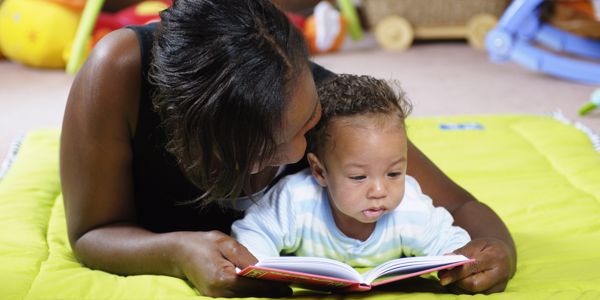We know that every parent eagerly awaits the moment when their baby says their first word! It’s a significant milestone that opens the door to a new form of communication between you and your little one. But when exactly does this magical moment happen? Let’s explore the stages of speech development in babies and how you can encourage their language skills.
Early Sounds and Babbling
From Birth to 6 Months
Your baby’s journey to talking starts long before they say their first word. In the early months, they begin to make sounds that form the building blocks of speech. From birth to three months, you’ll hear cooing and gurgling. This stage is all about your baby experimenting with their vocal cords, discovering how to produce different sounds.
By the time they reach four to six months, you’ll notice more varied sounds, including playful giggles and squeals. This babbling phase is crucial as it helps your baby practice the mechanics of speech
Read More: What is Baby Babble and When Will My Baby Start Babbling?
Your Baby Club and Center Parcs are giving you a chance to win a family break in a Woodland Lodge at a UK Center Parcs village of your choice.
The First Words
6 to 12 Months
Around six months, your baby’s babbling will start to sound more like real speech, with repetitive consonant sounds such as “ba-ba” or “da-da”. These sounds are often mistaken for words, but they are an essential step towards actual talking.
Most babies say their first word between 12 and 18 months. Common first words include “mama”, “dada”, and simple names for everyday objects like “ball” or “cat”. It’s an exciting moment and often a surprise as to which word comes first!
Expanding Vocabulary
12 to 24 Months
After that first word, vocabulary growth can be rapid. By 18 months, many toddlers can say around 10 words. This period is also when they begin to understand and follow simple instructions, even if they can’t yet express themselves fully.
By the age of two, children often start combining two words to form basic sentences like “more milk” or “daddy go”, and might have around 50 words in their vocabulary. This is a sign that they’re beginning to grasp the rules of language and how words fit together to convey meaning.
Encouraging Your Baby to Talk
Talking to your baby throughout the day is one of the best ways to encourage speech development. Describe what you’re doing, name objects around you, and engage in simple back-and-forth “conversations” with your baby, even if they can’t respond with words yet.
Reading to your baby from an early age can also significantly boost their language skills. Choose books with bright pictures and simple text, and make reading a fun, interactive activity.
Singing nursery rhymes and playing word games can also make learning to talk enjoyable. The rhythm and repetition in songs help babies learn the sounds and patterns of language.
Recognising and Addressing Speech Delays
While every child develops at their own pace, there are some signs that might indicate a delay in speech development. If your child isn’t making any sounds by six months, isn’t babbling by 12 months, or isn’t saying any words by 18 months, it’s worth discussing with your GP or Health Visitor.
Several factors can contribute to speech delays, including hearing issues, developmental disorders, or simply a lack of exposure to language. Early intervention can be key in these cases.
While most babies start talking between 12 and 18 months, remember that every child is unique. With your support and encouragement, your little one will soon be on their way to expressing themselves with words.






